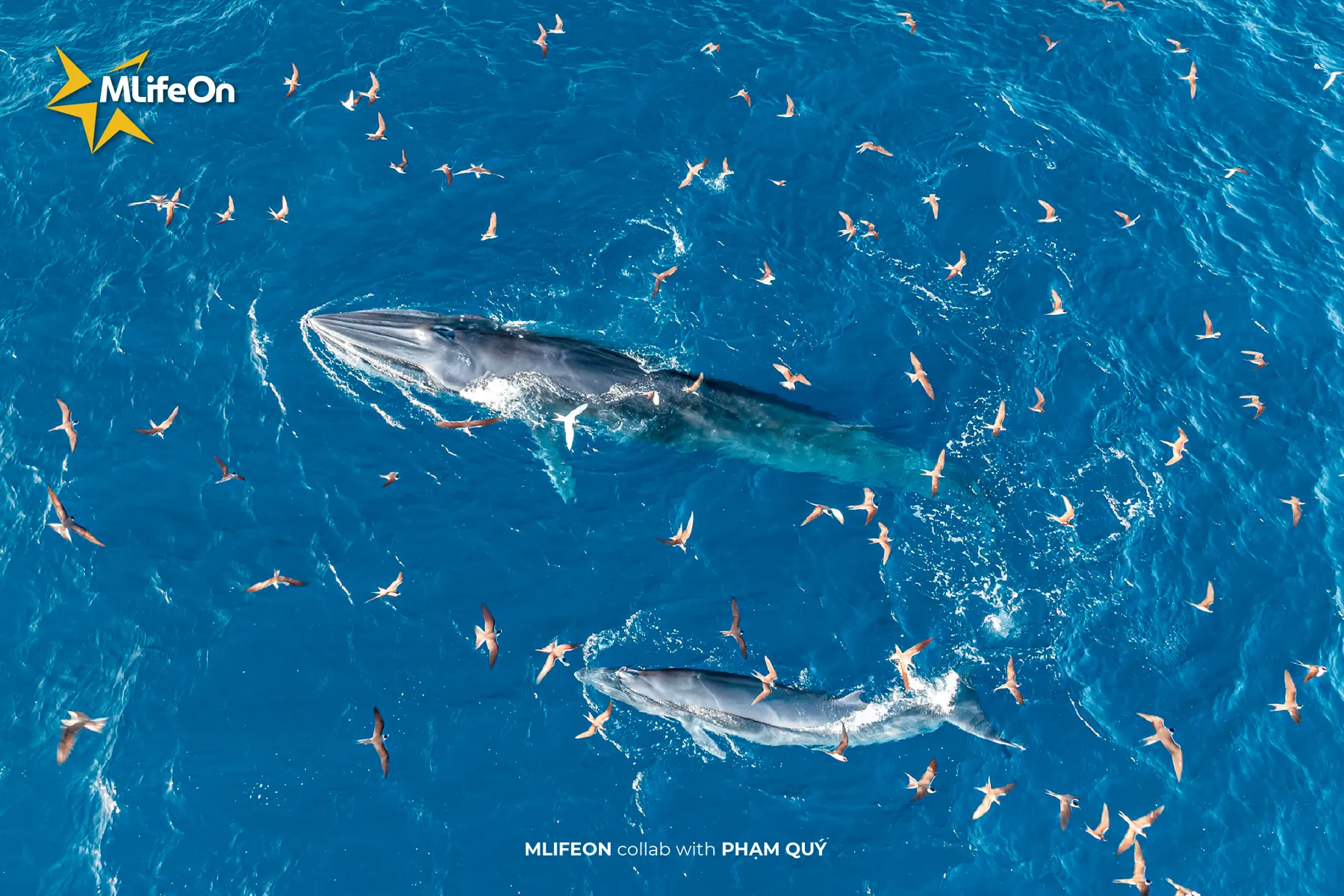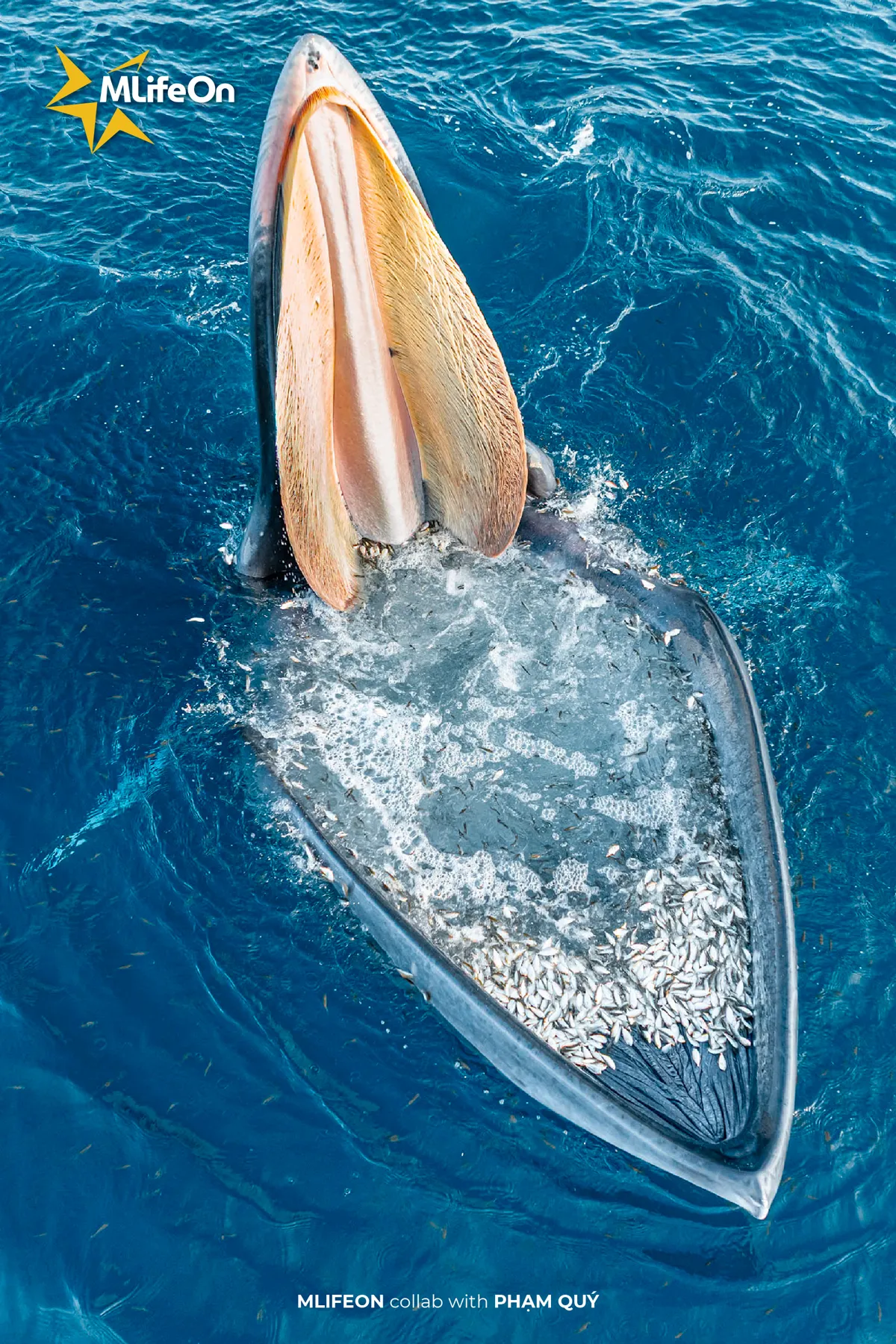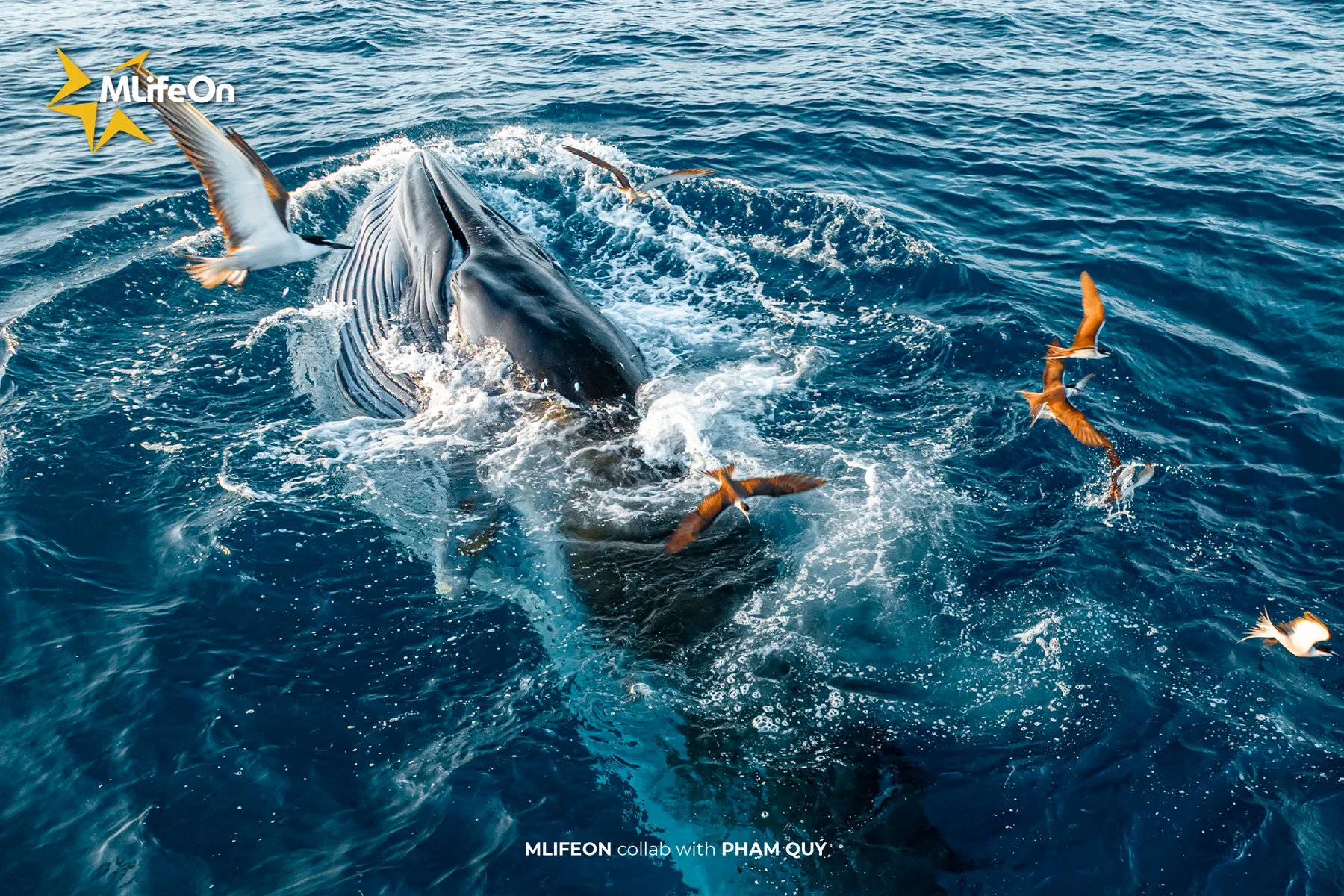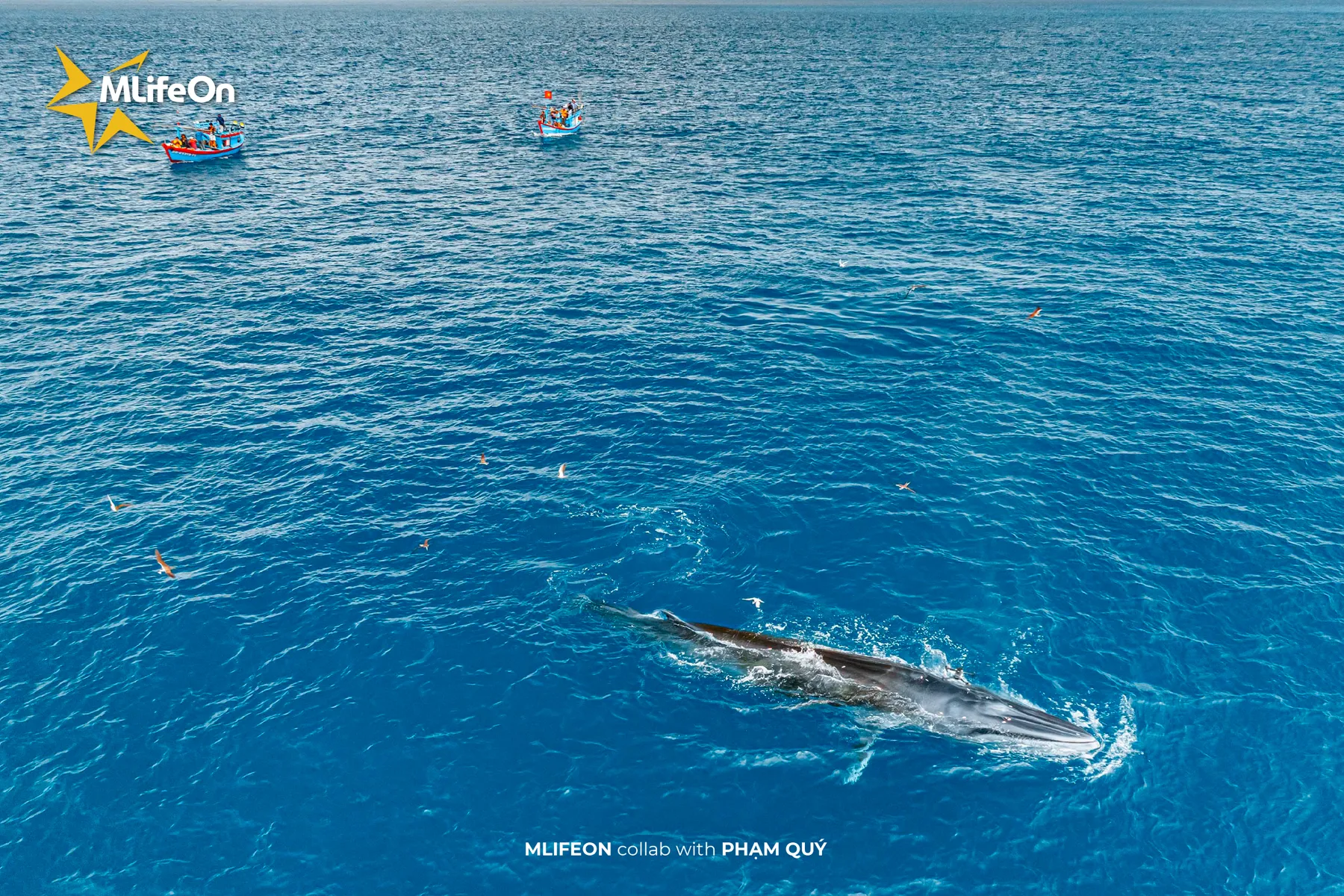In the deep blue water of De Gi sea, Gia Lai province, a giant black shadow suddenly emerged, sprayed white water, then quietly dived. It was a whale (Ca Ong) - a fish species revered by Vietnamese coastal people as a guardian deity of fishermen.
Swimming in the middle of De Gi sea, Gia Lai province are three whales. When observed closely, we can see that these three individuals seem to be a family. Swimming in the outer circle is the father fish, whose job is to herd the small fish into the inner area, while the remaining two individuals are the mother fish and the baby fish - taking turns catching prey. The whole whale family coordinates harmoniously, creating a gentle, graceful hunting rhythm like a dance hidden under the deep blue water.

Image of a mother whale and her baby whale leisurely floating on the sea under the protection of the father whale at De Gi beach, Gia Lai province. This is also the only area in Vietnam that has recorded the appearance of a whale family so far.
In the middle of the vast ocean and sky, the image of a whale family hunting together is not only a symbol of intense life, but also of connection, continuity, and learning - like the way previous and future generations accompany each other.
Gods in Vietnamese folk beliefs
For generations, people in the coastal areas of Vietnam, especially the coastal provinces of South Central and Southern Vietnam, have preserved the custom of worshiping Ca Ong (whale) as an indispensable part of their spiritual life. They believe that Whale is a sacred creature that can save ships in distress, guide them in storms, and bring peace to fishermen.
When a whale dies and drifts ashore, people call it “The Whale Washes Up on the Shore”. They do not consider this to be unlucky, but on the contrary, the Whale washing up on the shore is considered a good omen. Therefore, the ceremony is also solemnly held as if sending a god back to heaven.
There is a custom that is rarely mentioned but has existed in the cultural life of coastal people for a long time - that is the custom of mourning for whales. According to ancient custom, if anyone is the first to discover a Whale "lying" ashore, then that person's whole family will mourn for a whole year, as if they had just said goodbye to a relative. This custom not only shows the respect of coastal people for the god of the sea, but also reflects the sacred belief that: "The Whale is the guardian god of fishermen. Mourning is not sadness, but a way to show gratitude, to preserve the connection between people and the ocean - where each wave also carries the breath of faith and gratitude.
In addition, in the coastal areas of South Central and Southern Vietnam, there are also festivals such as Nghinh Ong or Cau Ngu festival to show the respect of coastal people for this god of the sea.
Some people say that if you see a Whale rising to the surface of the water, it is a good omen. Not only for the sea, but also for the mainland. Because it is a sign of harmony between humans and nature.

Whales appearing on the sea surface is a beautiful scene of nature.
The appearance of whales - a blessing from the sea
The time when whales appeared in Quy Nhon Dong and De Gi seas, Gia Lai province coincided with the period when provinces and cities merged their administrative boundaries. Local people believe that this is not just a coincidence, but a good omen from the ocean, like a blessing for a new beginning, for connection and harmonious development. After Quy Nhon Dong or De Gi seas, whales were also seen in Nha Trang Bay, Hon Mun area - a sea area famous for its diverse ecosystem and profound marine culture. Every time it appears, Whale reminds people of the presence of nature, of gratitude and respect for the ocean.
Perhaps for whales, the Vietnamese sea is a destination on this year's special itinerary, but for coastal fishermen - the moment the whale appears is not only a beautiful image, but also a greeting from the ocean, a good omen, a spiritual presence in modern life.

Whale image taken in Quy Nhon Dong sea, Gia Lai province
A symbol that needs to be preserved
Amidst the country's transformations, amid the changes of the sea, the Whale is still there - as a symbol of protection, of faith and of the sacred connection between humans and nature.
If you have the opportunity to visit Quy Nhon Dong, De Gi, Nha Trang or any sea area of Vietnam, listen to the sound of the waves, look out to sea. Because who knows, you might catch the moment when a whale rises from the sea, sending a greeting of goodwill from the ocean.
Whales are not only a mascot, but also a symbol of the connection between humans and the ocean. The conservation of this special fish species, as well as the preservation of the marine environment and the maintenance of traditional festivals, is not only a journey to protect beliefs, but also a journey to preserve a part of the soul of Vietnamese culture.

Which sea area of Vietnam will be the next destination for whales?
—---
CREDIT:
Photography: Pham Cong Quy
Content: Giang Huynh
Design: Trung Huynh




















